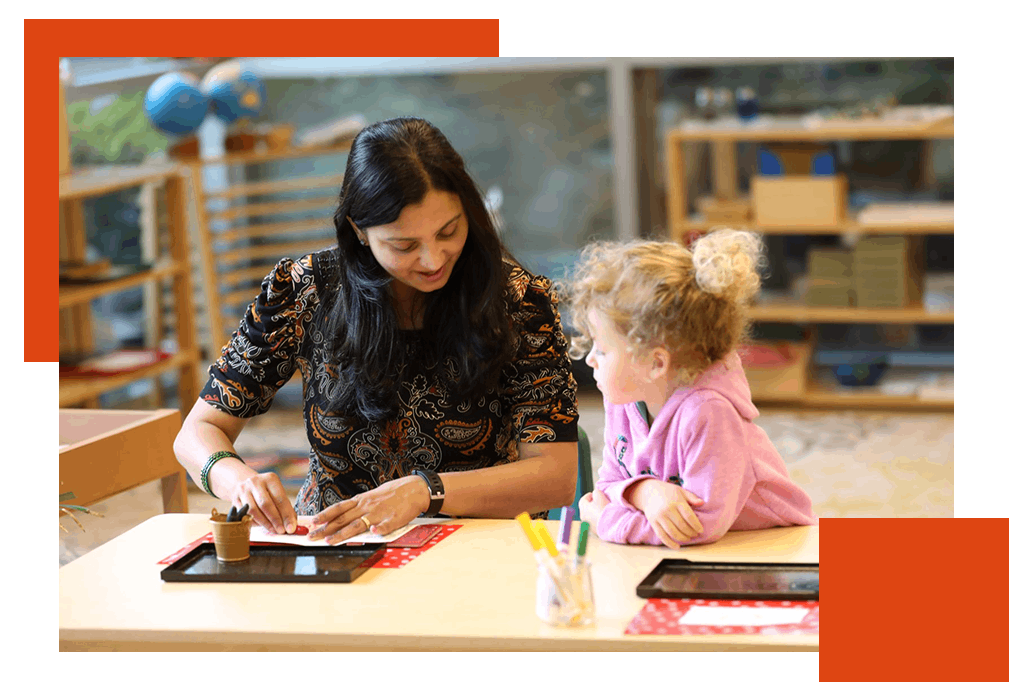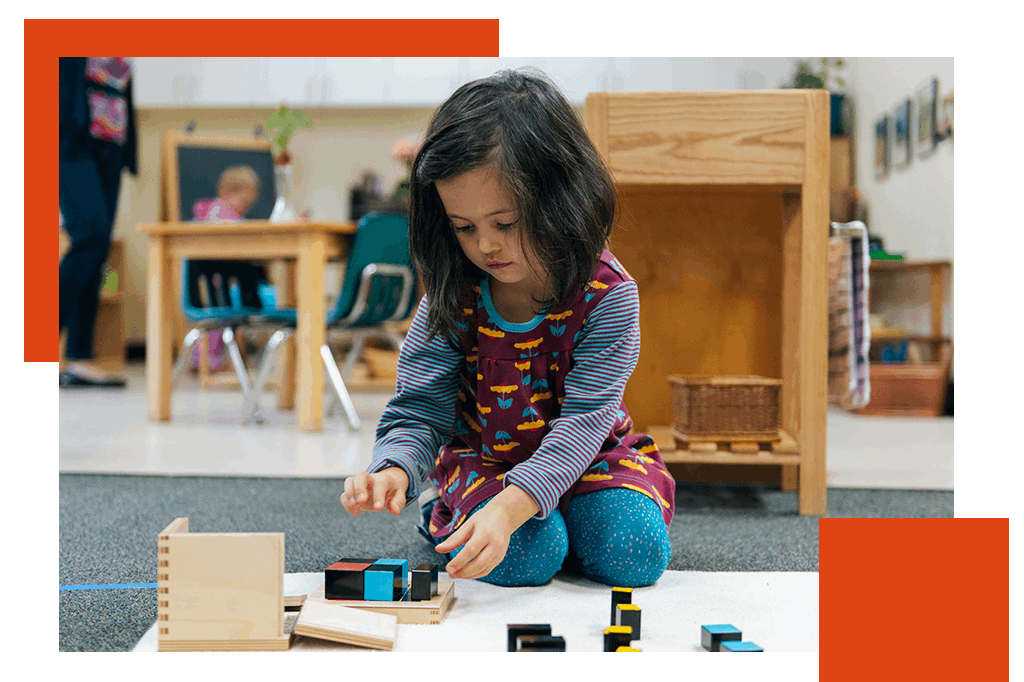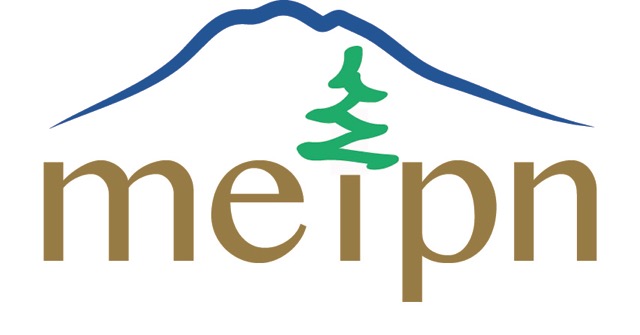Early Childhood Training
Early Childhood - Laying a Strong Foundation for Learning
“Education, therefore, of little ones is important, especially from three to six years of age, because this is the embryonic period for the formation of character and of society (just as the period from birth to three is that for forming the mind, and the prenatal period that for forming the body).” Montessori The Absorbent Mind
Montessori was one of the first to recognize the unique and innate capacities for learning that children possess between the ages of two and a half to six.
This training provides you with both the academic and practical experience to prepare and lead an authentic Montessori environment for children of this age.
Upon satisfactorily completing all academic and practicum requirements, you will be awarded a MACTE accredited, AMS-affiliated Early Childhood credential.
The AMS Early Childhood credential also meets the Washington State MERIT requirement for those supervising young children in state-licensed facilities.

Academic Phase
- Courses include Philosophy, Observation, Classroom Leadership, Family Involvement, and the curriculum areas of Practical Life, Sensorial, Language, Math, History, Geography, Life Science, Physical Science, Music, Movement, and Art. For course descriptions, see MEIPN Student Catalog
- Begins in June and continues for one year
- Consists of 340 contact hours of instruction (excluding the 30 hours for the Child Development prerequisite).
- Hybrid delivery -164 hours will be delivered online, 156 hours in residence, and 20 hours are independent observation times. Zoom sessions are held throughout the year.
- Child Development Course Prerequisite: A 3 to 5 quarter credit college course in Child Development, passed with a grade of B or higher, is required of all Early Childhood students. The course must cover physical, intellectual, social, and emotional development from the neonatal period through at least middle childhood. Ideally, this requirement is met before the start of the training program. Contact a course director for suggestions if you have not completed it.
Practicum Phase
The practicum experience allows you to observe a good model of the Montessori method in action and to practice what has been presented in class. Ideally, you will be working under the supervision of an experienced, credentialed Montessori teacher. In special cases, you may be working as the lead teacher in the classroom. This will extend your internship up to two academic years.


Duration
The practicum requires approximately 3 3/4 hours per day and five days per week of experience in an approved Montessori Early Childhood classroom for an entire school year. This totals a minimum of 675 hours of class preparation work, teaching, cleanup, meetings, parent conferences, etc. Experience gained before undertaking the academic portion cannot be counted towards your practicum.
Choosing a Practicum Site
Interns choose their practicum site, but program staff members are happy to advise. The site must comply with the requirements listed on the Practicum Site Agreement and the Supervising Teacher Agreement, so do review those requirements before your search. Schools that have not hosted a MEIPN intern in the past need to be pre-approved by MEIPN. See the MEIPN Student Catalog for more information on the Practicum and contact a director for suggestions on how to go about this.

